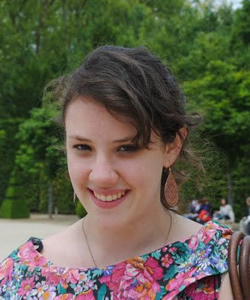There are two Spanish enclaves that border Morocco: Ceuta and Melilla. One of them, Ceuta, I have crossed on foot, clutching my navy blue American passport in one hand. We left my Moroccan associate director, Oumaima, and our two Moroccan van drivers, Said and Abdul Rahim, at the border as we breezed through immigration and spent three hours in Spain to renew our Moroccan visas. As we passed the barbed wire, we were made acutely aware of just how privileged we were simply to call ourselves Americans. Since the creation of the Schengen Zone, it has become increasingly difficult for Moroccans to get visas to enter Europe, even the parts of Spain that lie within continental Africa.
The article highlighted that the income disparity between Morocco and Spain, 17 to 20 times, is the highest across any border in the world. The author writes, “Here just a few rows of chain link and barbed wire separate the wealth of Europe from the despair of Africa.”
I was appalled when I read that sentence.
The author described fifty-four countries with one word: “despair.” For people who have never been to Africa, and who know very little about Morocco in particular, this article only serves to solidify the stereotypes that all African nations are stuck, desperate, and destitute while Europe is the shining example of everything they could be. I found this to be incredibly sloppy reporting on the part of the New York Times.
Poverty, unemployment, and inequality are serious problems in Morocco. Fifteen percent of people live under the poverty line and nine percent or more are unemployed, but Morocco’s struggle with development cannot be lumped in with every other African nation—this tendency overlooks the diverse backgrounds of each nation and the unique circumstances that many of them face.
From living here it has become clear to me that Morocco needs educational overhaul. The schools have not updated the way that they teach Modern Standard Arabic, so many children become frustrated and hate school because the method of instruction is rigid and often unconnected to their daily lives, especially because most speak a very different colloquial version of Arabic, called Darija, at home. Also, most university degrees are in French, but there is less and less French instruction in public schools, so lower income children struggle to complete high school and college. If nothing else, all levels of education should be conducted in one language to level the playing field.
Yet these linguistic challenges also serve to shape Moroccan identity as people speak Darija, Tamazight, French, Spanish, and Modern Standard Arabic, many switching between multiple combinations of languages in a single sentence. Moroccan identity is complicated between its location on the African continent, connection to the Arab world, local heritage, and colonial past. There is such cultural and linguistic richness in Morocco, let alone every corner of Africa. Describing all of Africa with a single word, despair, is lazy reporting and does a serious disservice to readers.
Morocco, like many countries, faces serious challenges for economic development and addressing social inequality, but as long as Western media perpetuates the idea that Africa is one stagnant, hopeless place in comparison to Europe, the majority of the Western world, who will likely never experience a country in Africa for themselves, will continue to misunderstand an entire part of the world. Within Morocco there is also diverse art, language, food, dance, poetry, religion, and families; to describe all of that as despair is the absolute opposite of what I have experienced in my time living with a middle class Moroccan family.
We need develop a discourse about Africa outside of the narrative of what it lacks. We need to treat African countries for what they are, individual nations. We need to understand that poverty and social inequality alone do not define nations and peoples. And we need to leave the paradigm of Africa as despair and Europe as wealth in the past, because it’s inaccurate.

